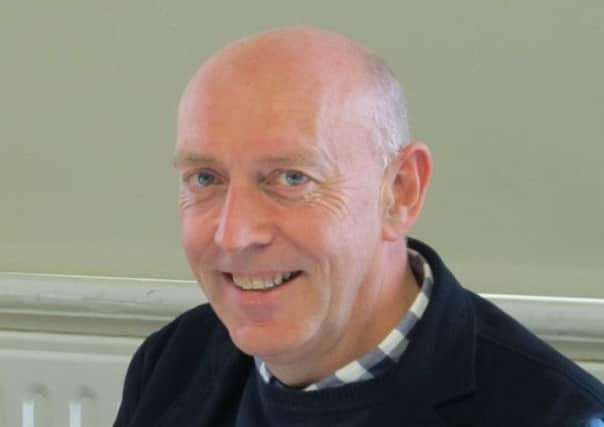'˜We will not let paramilitaries take us for ride over funding'


The consortium, headed by Co-operation Ireland chief executive Peter Sheridan, is looking for “ambitious and innovative ideas” that will persuade Troubles-era gangsters to turn their back on criminality.
But the former senior police officer has insisted there will be no slush fund for pet projects.
Advertisement
Hide AdAdvertisement
Hide AdHe said: “We are not going to allow ourselves, as a consortium, to be taken along for a ride by some groups or organisations that think somehow they will get funding out of this and they can do nefarious activities at night time.”
The consortium, which was set up in October, is a key element of a strategy included in the 2015 Fresh Start Agreement.
It is understood that some £50m overall has been ring-fenced for anti-paramilitarism programmes over five years, and the consortium – which has no formal name – could get up to £12m of that to give out to various projects.
Mr Sheridan said: “We are looking for innovative, ambitious initiatives; new thinking, new ideas from groups, organisations and individuals that they can see from their particular area’s perspective would help shift their community on from being either under the control of or being subservient to paramilitary organisations.
Advertisement
Hide AdAdvertisement
Hide Ad“We will then, as a consortium, use our best expertise to make an assessment of the ones we are going to recommend to the Executive Office.
“We will bring forward what we think are the best ideas however big they are...
“We will put that on the table and it is up to the Executive then to make decisions around where that is.”
As well as Co-operation Ireland, the consortium includes field workers from the Mitchell Institute at Queen’s University, Incore at Ulster University (which describes itself as a “centre of excellence for the study of peace and conflict”), and the Institute for Conflict Research, who will work to identify a transition plan for eight areas in Belfast and beyond.
Advertisement
Hide AdAdvertisement
Hide AdThat will mean talking to paramilitary crime gangs as well as community groups, churches and others.
Mr Sheridan added: “We will engage with people in paramilitary organisations. But people who want to transition. We are not engaging with people in paramilitary organisations who want to remain connected to organised crime, gangsterism and criminality.”
The eight areas were assessed by the number of paramilitary attacks, levels of intimidation, and other factors.
They include the New Lodge and Greater Ardoyne in north Belfast; the Lower Falls, Twinbrook, Poleglass, Upper Springfield, Turf Lodge and Ballymurphy in the west of the city; the Shankill (upper and lower) including Woodvale in west Belfast; plus The Mount and Ballymacarrett in east Belfast.
Advertisement
Hide AdAdvertisement
Hide AdIt also includes the Brandywell and Creggan in Londonderry; Drumgask and Kilwilkie in Lurgan; the Larne area including Antiville and Kilwaughter as well as parts of Carrickfergus such as Northland and Castlemara; plus the Clandeboye, Conlig, and Kilcooley areas of north Down.